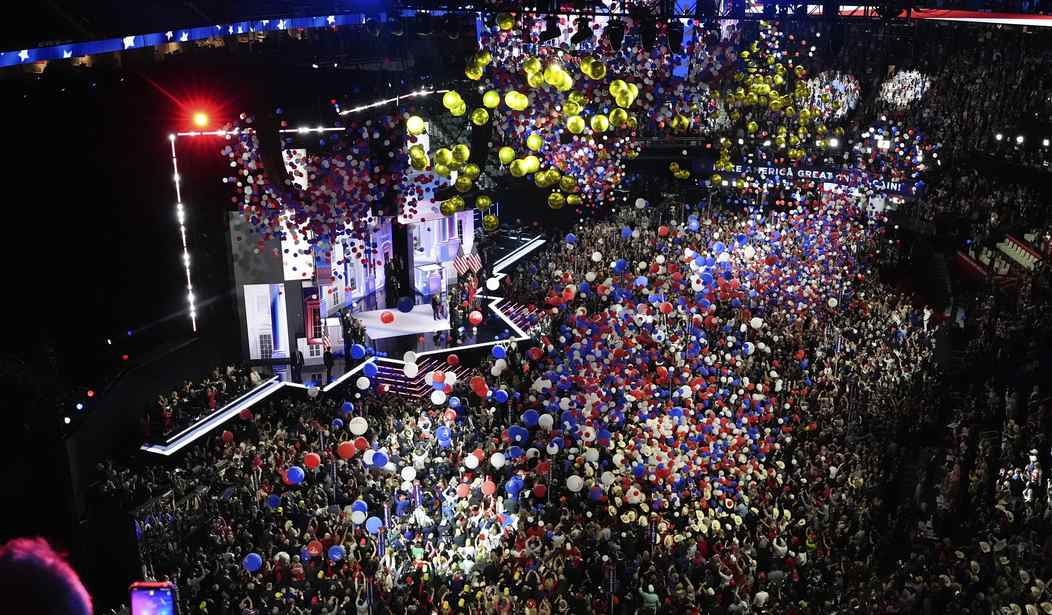In the wake of the recent shooting of Donald Trump, and last week's Republican National Convention, there has been a lot of religious rhetoric used across the U.S., especially in Milwaukee’s Fiserv Forum where the convention was held. The language of providence was used to talk about the candidate surviving an assassination attempt. There were prayers by faith leaders from many different religious traditions—Catholic, Jewish, Greek Orthodox, Baptist, Independent, and even Sikh. There were calls to prayer and calls to repentance. There were loads of calls for God to bless America and Donald Trump, but also prayers for all those in authority and all the children of Abraham.
Some have decried this, saying that the rhetoric of this week was somehow out of bounds, and that it made the convention seem like a big Christian revival tent.
What are we to make of this? Was this unusual? Not at all. References to faith, God, morals, Moses, Israel, and even Jesus, are not unusual. Just listen to any of the big RNC or DNC conventions and you will hear lots of prayers and lots of religious rhetoric. Look at the speeches as well. Joe Biden in his 2020 acceptance speech spoke of a “battle for the soul of America” framing the election as a moral, pivotal even existential struggle and that he would lead the nation out of darkness
Does anybody remember the messianic rhetoric used by Barack Obama when he ran for office? Then back in his 2004 keynote address at the DNC, Obama himself proclaimed, “We worship an awesome God in the blue states.” In 2008, he explained how his Christian faith informed his vision of America as he emphasized the themes of hope and redemption.
What about this year's RNC referencing God sparing Donald Trump? Numerous speakers, referring to the near miss of that bullet, said that “God alone prevented the unthinkable that happened.” Was that kind of rhetoric out of bounds for a convention, especially in light of the recent assassination attempt? One could not help but notice a subdued Donald J Trump as he gave his speech. He began by saying, “I’m not supposed to be here tonight” “I stand before you only by the grace of almighty God.” What else could one say after such a close call?
Recommended
Have we forgotten the very strong belief in providence of America’s founding Fathers? Washington in his first inaugural address in 1789 said “No people can be bound to acknowledge and adore the Invisible hand which conducts the affairs of men more than the people of the United States. Jefferson in his second inaugural address in 1805 spoke of “the favor of that Being in whose hands we are, who led our fathers, as Israel of old, from their native land and planted them in a country flowing with all the necessaries and comforts of life.”
If this kind of rhetoric is out of bounds, then please realize we are calling Washington, Jefferson, Adams, Lincoln, and the majority of American presidents Christian nationalists. Yet most of them identified as Christians, loved their country, and used such rhetoric naturally.
Are there ever excesses of religious rhetoric? Of course. I heard some last week as I attended the RNC. I am not referring to those like Franklin Graham who quoted the Bible (John 3:16) and said “Sadly, as a nation, we have forgotten who is responsible for all the freedoms, the liberties and the bounty we enjoy.” I’m not even referring to those who said America needs to turn back to God, or that a particular leader “was made for such a time as this.”
In my opinion, religious rhetoric goes over the top when speakers or a banner say things like “only Trump can save America,” or “the US Constitution is the greatest document in history.” I heard both comments last week in Milwaukee. Now, I’m not denying the uniqueness, importance, or longevity of the US Constitution. I’m just saying that it is not the Bible. I give Holy Scripture the unique place of the greatest document in history. And ultimately our trust should not be in politics, or any candidate, but God alone. God certainly uses leaders, but salvation is of the Lord. Thankfully, given all the “faith talk” at the convention center this week, comments like these over-the-top comments were rare.
Overall, the religious rhetoric used this week at the RNC was not at all unusual. To say that it is out-of-bounds is to ignore the history of recent political conventions and American political history as well.
Dr. Donald Sweeting (@DSweeting) serves as chancellor of Colorado Christian University.

























Join the conversation as a VIP Member